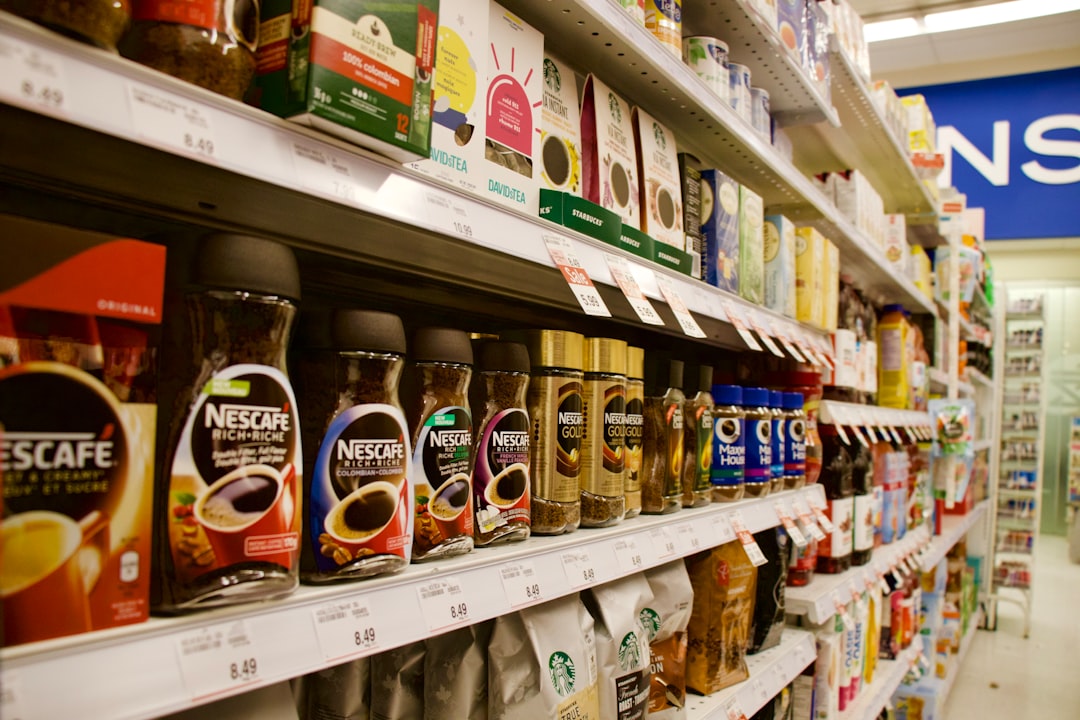In today’s highly competitive market, store loyalty has become more important than ever. With so many options available to consumers, businesses need to find ways to keep customers coming back. One effective strategy for boosting store loyalty is personalized SMS marketing. By sending targeted and personalized messages directly to customers’ phones, businesses can create a more personalized and engaging experience, ultimately leading to increased loyalty and repeat business.
Key Takeaways
- Store loyalty is crucial in today’s market for businesses to retain customers and increase revenue.
- Personalized SMS marketing can help businesses connect with customers on a more personal level.
- Utilizing customer data can help businesses create effective SMS campaigns that resonate with their target audience.
- Crafting the perfect SMS message involves using clear and concise language that encourages customers to take action.
- Timing is important when sending SMS messages to customers, as it can impact their engagement and response rates.
The Importance of Store Loyalty in Today’s Market
Store loyalty plays a crucial role in the success of businesses. According to a study by Harvard Business Review, increasing customer retention rates by just 5% can lead to a 25% to 95% increase in profits. Additionally, loyal customers are more likely to recommend a business to others, further increasing its customer base.
In today’s market, where consumers have access to a wide range of options and can easily compare prices and reviews online, store loyalty is even more important. Businesses need to find ways to stand out from the competition and create a unique and memorable experience for their customers. Personalized SMS marketing can help achieve this by delivering targeted messages that resonate with customers on a personal level.
Understanding Personalized SMS Marketing
Personalized SMS marketing involves sending targeted messages to individual customers based on their preferences, behaviors, and purchase history. Unlike traditional SMS marketing, which sends generic messages to a large group of recipients, personalized SMS marketing allows businesses to tailor their messages to each individual customer.
The benefits of personalized SMS marketing for boosting store loyalty are numerous. Firstly, personalized messages make customers feel valued and appreciated, which in turn increases their loyalty towards the business. Secondly, by targeting specific segments of customers with relevant offers and promotions, businesses can increase the likelihood of conversion and repeat purchases. Finally, personalized SMS marketing allows businesses to gather valuable customer data that can be used to further refine their marketing strategies.
Utilizing Customer Data to Create Effective SMS Campaigns
| Metrics | Description |
|---|---|
| Open Rate | The percentage of SMS messages that were opened by recipients. |
| Click-Through Rate (CTR) | The percentage of recipients who clicked on a link in the SMS message. |
| Conversion Rate | The percentage of recipients who completed a desired action, such as making a purchase or filling out a form, after receiving the SMS message. |
| Churn Rate | The percentage of customers who have stopped engaging with your SMS campaigns over a given period of time. |
| Subscriber Growth Rate | The rate at which your SMS subscriber list is growing over a given period of time. |
| Revenue Generated | The total amount of revenue generated from SMS campaigns. |
Collecting customer data is crucial for creating effective SMS campaigns. By gathering information such as demographics, purchase history, and preferences, businesses can segment their customer base and send targeted messages that are more likely to resonate with each individual.
For example, a clothing retailer can use customer data to send personalized messages to customers who have previously purchased items from a specific brand or category. By offering exclusive discounts or promotions on similar items, the retailer can encourage these customers to make repeat purchases and increase their loyalty.
Another example is a restaurant that collects customer data such as birthdays or anniversaries. By sending personalized messages with special offers or freebies on these occasions, the restaurant can create a memorable experience for its customers and increase their likelihood of returning.
Crafting the Perfect SMS Message to Boost Store Loyalty
Crafting effective SMS messages is essential for boosting store loyalty. Here are some tips for creating compelling and engaging messages:
1. Keep it short and concise: SMS messages have a character limit, so it’s important to get straight to the point. Use clear and concise language to convey your message effectively.
2. Use personalization: Address the recipient by name and tailor the message to their specific interests or preferences. This will make the message feel more personal and increase its impact.
3. Create a sense of urgency: Use words like “limited time offer” or “exclusive deal” to create a sense of urgency and encourage immediate action.
4. Include a clear call to action: Tell the recipient exactly what you want them to do, whether it’s visiting your store, making a purchase, or signing up for a loyalty program.
Here’s an example of an effective SMS message for boosting store loyalty:
“Hi [Customer Name], we appreciate your loyalty! As a thank you, we’re offering you 20% off your next purchase. Visit our store within the next 48 hours and show this message to redeem your discount. Happy shopping!”
Timing is Everything: When to Send SMS Messages to Customers

Timing plays a crucial role in the success of SMS marketing campaigns. Sending messages at the right time can significantly increase their effectiveness and impact. Here are some best practices for timing SMS messages:
1. Consider the recipient’s time zone: Make sure to send messages at a time when the recipient is likely to be awake and available to read and respond to them.
2. Avoid peak hours: Sending messages during peak hours, such as early morning or late evening, may result in them getting lost in a sea of other notifications. Instead, try sending messages during off-peak hours when the recipient is more likely to have time to engage with them.
3. Use customer data to determine optimal timing: Analyze customer data to identify patterns and preferences in terms of when customers are most likely to engage with SMS messages. This can help you determine the best times to send messages for maximum impact.
Here’s an example of a successful timing strategy for SMS marketing:
A coffee shop sends out SMS messages offering a discount on their morning coffee between 7 am and 9 am, targeting customers who have previously made purchases during this time frame. By sending the message just before customers are likely to make their morning coffee run, the coffee shop increases the likelihood of customers choosing their store over competitors.
The Power of Personalization: How it Can Improve Store Loyalty
Personalization is a powerful tool for improving store loyalty. By tailoring messages and offers to each individual customer, businesses can create a more personalized and engaging experience that resonates with customers on a deeper level.
One way to personalize SMS messages is by addressing the recipient by name. This simple gesture makes the message feel more personal and shows that the business values and recognizes each individual customer.
Another way to personalize SMS messages is by using customer data to send targeted offers and promotions. For example, a grocery store can send personalized messages to customers who frequently purchase organic products, offering them exclusive discounts or promotions on these items. By targeting customers with offers that align with their preferences, businesses can increase the likelihood of conversion and repeat purchases.
Measuring the Success of Your SMS Marketing Campaigns
Measuring the success of SMS marketing campaigns is essential for optimizing strategies and improving results. Here are some metrics to track for measuring success:
1. Open rate: This measures the percentage of recipients who open the SMS message. A high open rate indicates that the message was compelling and engaging.
2. Click-through rate: This measures the percentage of recipients who click on a link or take a desired action after opening the SMS message. A high click-through rate indicates that the message was effective in driving engagement and conversion.
3. Conversion rate: This measures the percentage of recipients who complete a desired action, such as making a purchase or signing up for a loyalty program, after clicking on a link in the SMS message. A high conversion rate indicates that the message successfully motivated recipients to take action.
There are various tools available for tracking SMS marketing success, such as analytics platforms that provide real-time data on open rates, click-through rates, and conversion rates. By regularly monitoring these metrics and making adjustments to strategies as needed, businesses can optimize their SMS marketing campaigns for maximum effectiveness.
Building a Stronger Relationship with Customers Through SMS
SMS marketing can help businesses build stronger relationships with their customers. By sending personalized messages directly to customers’ phones, businesses can create a more intimate and engaging experience that fosters loyalty and trust.
One way to build stronger relationships through SMS marketing is by sending messages that provide value to customers beyond just promotional offers. For example, a fitness center can send workout tips or healthy recipes to its members, showing that it cares about their well-being and wants to help them achieve their fitness goals.
Another way to build stronger relationships is by using SMS to gather feedback and opinions from customers. By sending surveys or polls via SMS, businesses can show that they value their customers’ input and are committed to continuously improving their products or services.
The Role of Incentives in Boosting Store Loyalty through SMS Marketing
Incentives play a crucial role in boosting store loyalty through SMS marketing. By offering exclusive discounts, promotions, or rewards to customers, businesses can incentivize them to make repeat purchases and increase their loyalty.
One effective incentive strategy is to offer a discount or promotion for customers who refer a friend or family member to the business. By rewarding customers for bringing in new customers, businesses can not only increase their customer base but also strengthen the loyalty of existing customers.
Another incentive strategy is to offer rewards or points for every purchase made. By implementing a loyalty program that rewards customers for their continued patronage, businesses can encourage repeat purchases and increase customer loyalty.
Staying Ahead of the Game: Trends in SMS Marketing for Store Loyalty
To stay ahead of the game in SMS marketing for store loyalty, businesses need to stay up-to-date with the latest trends and innovations in the industry. Here are some current trends to watch out for:
1. Chatbots: Chatbots are becoming increasingly popular in SMS marketing. Businesses can use chatbots to automate customer interactions and provide instant responses to inquiries or requests. This not only improves customer service but also allows businesses to gather valuable data on customer preferences and behaviors.
2. Multimedia messaging: With the increasing popularity of smartphones, businesses can now send multimedia messages that include images, videos, or GIFs. This allows for more engaging and visually appealing content that can capture the attention of customers and increase their likelihood of engagement.
3. Integration with other marketing channels: SMS marketing is most effective when integrated with other marketing channels, such as email or social media. By creating a cohesive and consistent customer experience across multiple channels, businesses can increase the impact of their SMS marketing campaigns and boost store loyalty.
Store loyalty is crucial for the success of businesses in today’s competitive market. Personalized SMS marketing is an effective strategy for boosting store loyalty by delivering targeted and personalized messages directly to customers’ phones. By utilizing customer data, crafting compelling messages, and timing them effectively, businesses can create a more personalized and engaging experience that resonates with customers on a deeper level. By measuring the success of SMS marketing campaigns, building stronger relationships with customers, and offering incentives, businesses can further enhance store loyalty. To stay ahead of the game, businesses should stay up-to-date with the latest trends in SMS marketing and continuously optimize their strategies. By implementing personalized SMS marketing strategies, businesses can boost store loyalty and drive long-term success.
If you’re interested in revolutionizing your small business with SMS-iT CRM software, you may also want to check out this informative article on streamlining your customer relationships. This guide provides valuable insights and tips for a successful SMS-iT CRM implementation, helping you enhance customer loyalty and drive business growth. Additionally, if you’re curious about the benefits of integrating fax capabilities into your CRM system, this article on SMS-iT Fax explores how this feature can further streamline your communication processes. Discover the power of personalized marketing and take your grocery store loyalty to new heights with SMS-iT CRM. Read more here.
FAQs
What is SMS-iT CRM?
SMS-iT CRM is a customer relationship management software that allows businesses to communicate with their customers through SMS messaging.
How can SMS-iT CRM improve grocery store loyalty?
SMS-iT CRM can improve grocery store loyalty by sending personalized marketing messages to customers based on their shopping habits and preferences. This can increase customer engagement and encourage repeat visits.
What kind of personalized marketing messages can be sent through SMS-iT CRM?
SMS-iT CRM can send personalized marketing messages such as discounts, promotions, and product recommendations based on a customer’s purchase history and preferences.
How does SMS-iT CRM collect customer data?
SMS-iT CRM collects customer data through various channels such as loyalty programs, online purchases, and in-store purchases. This data is then used to create personalized marketing messages.
Is SMS-iT CRM compliant with data privacy regulations?
Yes, SMS-iT CRM is compliant with data privacy regulations such as GDPR and CCPA. The software allows customers to opt-in and opt-out of receiving marketing messages and provides transparency on how their data is being used.
Can SMS-iT CRM integrate with other systems?
Yes, SMS-iT CRM can integrate with other systems such as POS systems, e-commerce platforms, and loyalty programs to collect and analyze customer data.







